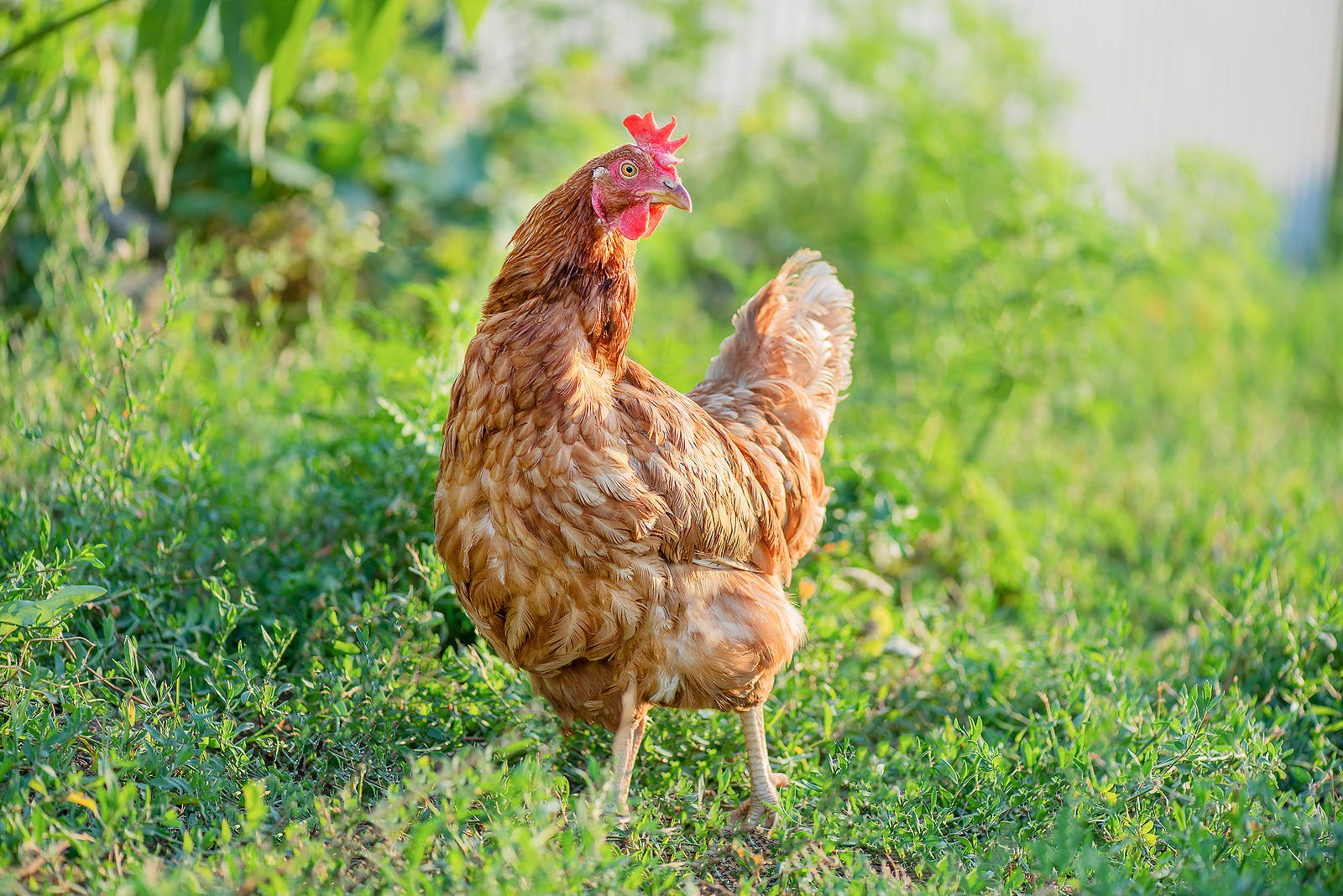Have you ever thought of having an urban hen house in your yard with your very own flock? Do you live in the City of Kamloops? If so, this may be worth a ponder!
On my adventures showing homes have been asked on several occasions if chickens are allowed in the City of Kamloops and on one occasions I have even negotiated backyard chickens into a deal! Overall, I really haven’t explored the topic in too much detail. This eggciting research started with a lovely gift of farm fresh eggs from one of my clients. It got me thinking: “Can I have chickens in my yard?”. That’s how good the eggs were! If I find myself asking this question, then possibly so are some of you reading today! Before you get ahead of yourself, as I did, and start scrolling though the adorable chicken houses online for inspiration I have listed some more information below! Farm fresh eggs are hard to beat and having laying hens “supports sustainable local food and urban agriculture initiatives” set out by the City of Kamloops. However, having been raised on an acreage, I know first hand that the feast of fresh eggs comes with some work!
I have listed below some information from the City of Kamloops website.
The following information has been provided from kamloops.ca
What You Need to Know
- Learn About Hens – Research the needs, lives, and care of hens and eggs. Do as much research as you can!
- Understand Regulations – Review the City of Kamloops information, including the web page linked above and the Animal Control Bylaw.
Regulations for Owners of Urban Hens
To raise urban hens, you must live on the premises and be the property owner or have the property owner’s permission. You must have:
- a single-family or duplex lot that is a mimimum of 370 m2*
- a fenced back yard (1.2 m minimum–2 m maximum height)
- a regulation coop
*separate regulations exist for lots that are an acre or larger. See Animal Control Bylaw No.34-11 for specific details.
Details of hen possession:
- minimum two, maximum five hens
- no roosters (males) or chicks (less than three months old)
Self-registration is required and free of charge.
Other Regulations
There can be no open feed on site. Feed must be in a dry, wildlife-resistant container. Storage of more than 180 L of manure is not permitted. There can be no slaughter on site.Deceased hens are not acceptable in curbside garbage pickup. They must be either taken to the landfill for disposal, or taken to Animal Control at 1303 Mission Flats Road for cremation. View cremation rates and hours of operation.
Coop Regulations
In order to have healthy hens, you must provide a minimum 0.5 m2 per hen inside the coop, and a minimum 1 m2 per hen outside the coop. Both areas must be fully enclosed and covered. Each hen must have its own nesting box and roost. This provides the hens with humane living space.
You can protect your hens from predators and wildlife by ensuring good sight lines between your coop and your house, a well-built coop, and a sturdy fence.
The coop must be:
- no bigger than 10m2 in total (including the inside and outside space)
- in the backyard
- a minimum of 1 m from property lines
- a minimum of 3 m from any doors or windows of dwellings
- no taller than 2 m from average grade
- Register With The City – Self-registration is required and free of charge.
- Build Your Coop – To have healthy hens you must have at least 0.5 m² per hen inside the coop, and a minimum 1 m² per hen outside the coop with both areas fully enclosed and covered; each hen must have their own nesting box and roost. The coop must be no bigger than 10 m² and must be in the backyard. Setbacks for the coop in the back yard are 1 m from side and rear property lines and 3 m from the dwelling unit. See bylaw for specific details.
- Gather Supplies – Buy your feed, dishes for feed and water, pine shavings for the coop floor, and straw for the nest boxes.
- Get Hens – Buy hens from a reputable dealer or have a friend gift them to you. (2-5 hens, no roosters)
A few suggestions from Purity:
Barred Rocks
One of the western worlds oldest breeds, these are hearty girls that are well suited for backyard life. They are friendly and inquisitive, and great with kids. Barred Rocks are good egg producers and are not overly broody. They absolutely love to forage and would be happy with most backyard set ups.
Rhode Island Red
This breed is a beautiful rich red color. Rhode Islands are extremely docile and hardy. They lay dark brown eggs even in the winter months.
Columbian Rock
Known as being one of the hardiest breeds around. It has a beautiful color pattern and is a very quiet and docile bird. they are good egg producers of quality dark brown eggs.
- Harvest Eggs – Urban hens are for the enjoyment of the person or family living on the premises. No one is allowed to sell the eggs, meat, or manure.
- Care for Them – Hens need attention and care including fresh water, healthy food, and a clean and well maintained coop that is free from manure, smells, and pests. Feed can attract pests so be sure to keep all feed in closed containers that are wildlife resistant and dry.
For educational inquiries, please contact foodsecurity@kamloops.ca or 250-828-3850
If you want to start your own urban hen house in the City of Kamloops but just need to find the right yard, call me!
Jennifer MunroRoyal Lepage Westwin Realty 250-572-5670jennifer@soldonkamloops.com
Follow me here for more reasons I am Sold on Kamloops!





